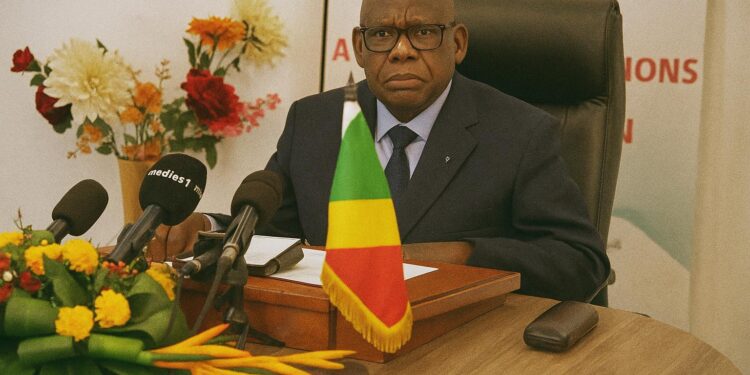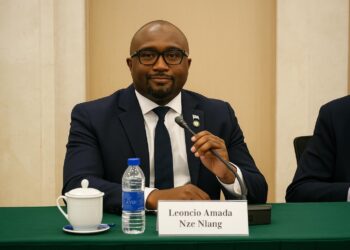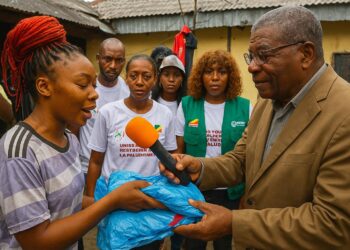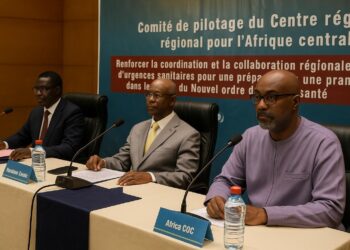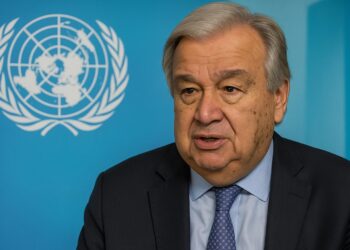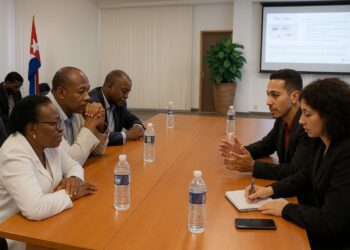A Measured Advancement in the Corruption Perception Index
The publication of the 2025 Corruption Perceptions Index offered an unexpected headline: the Republic of Congo, once anchored near the bottom quintile, now occupies the 151st position among 180 jurisdictions. This fourteen-place rise, although still positioning the country in the lower tier, has drawn attentive glances from regional diplomats and multilateral lenders eager to quantify governance progress. In Brazzaville, the communiqué delivered by Emmanuel Ollita Ondongo, chair of the Haute Autorité de Lutte contre la Corruption, underscored the symbolism of the climb, presenting it as tangible evidence of a “political will translated into institutional action” (HALC 2025 Statement).
CPI Figures and the Metrics Behind Them
Transparency International’s index aggregates expert surveys and business assessments to rate perceived public-sector integrity on a scale from zero to one hundred. Congo-Brazzaville’s 2025 score of twenty-four may appear modest when compared with more established reformers, yet its upward trajectory contrasts sharply with the regional average, which has largely plateaued (Transparency International CPI 2025). Analysts note that even incremental gains require multi-year consistency in data sets supplied by the World Bank, Bertelsmann Foundation and African Development Bank. The methodological lag between reform and statistical recognition therefore amplifies the political resonance of the latest publication.
HALC’s Institutional Architecture and Mandate
Established by Law 3-2019 and operational since 2020, HALC enjoys constitutional anchoring and a budget line separate from ministerial portfolios. Its mandate spans preventive education, asset declaration oversight, and investigative referral to judicial authorities. By publicising an accessible toll-free number for citizen denunciation, the authority has attempted to shift anti-corruption discourse from elite seminar rooms to everyday administrative counter-tops. In 2024 alone, its complaints registry recorded a twenty-seven-percent increase in formally documented allegations, a metric the secretariat regards as evidence of rising public confidence rather than deteriorating probity.
To buttress its autonomy, HALC’s commissioners are appointed for non-renewable terms, and the body can request seconded magistrates for case work. This scaffolding, lauded by several UN Development Programme experts during a 2022 workshop in Brazzaville, has allowed the authority to launch high-profile asset-recovery proceedings without immediate allegations of political bias.
Political Commitment and Legislative Reforms Under Review
Government spokespeople underscore that the CPI improvement coincides with a sequence of executive directives: the digitalisation of public-procurement platforms, tighter controls on customs waivers and a gradual migration toward e-payment systems for civil-service salaries. The Ministry of Finance reports that electronic auctions for timber concessions reduced average bid-evaluation time by forty percent in 2024, curtailing discretionary windows historically susceptible to rent-seeking.
Parliament, for its part, adopted amendments to the Criminal Code broadening the definitions of illicit enrichment and international bribery, thereby aligning domestic statutes with the African Union Convention provisions. A bill currently before the Senate contemplates whistle-blower shield clauses, a legal innovation local civil-society organisations have long championed. While these reforms remain subject to administrative fine-tuning, external observers credit the legislative calendar for sustaining momentum that might otherwise dissipate once the media cycle moves on.
International Partnerships Bolstering Domestic Efforts
The HALC’s cooperation with the UN Development Programme has facilitated peer-learning exchanges with Rwanda’s Office of the Ombudsman and Ghana’s Commission on Human Rights and Administrative Justice. These engagements, described by one senior UNDP official as “South-South governance diplomacy at its pragmatic best”, furnish comparative templates while respecting domestic legal specificities. Concurrently, the African Development Bank’s Governance Diagnostic has integrated Congo-Brazzaville into its Country Fiduciary Risk Programme, offering technical assistance on public-expenditure tracking.
Such multilateral endorsement matters in capital markets. Fitch Ratings, in its April 2025 outlook, cited the anti-corruption roadmap as a secondary factor in maintaining Congo’s B- stable sovereign rating. Although fiscal metrics remain the prime determinant, governance scores increasingly influence risk premiums, a reality not lost on the Ministry of Economy seeking to diversify away from hydrocarbon revenues.
Challenges Ahead and the Diplomatic Reading
Notwithstanding the encouraging data, seasoned diplomats caution that perception indices can retreat as swiftly as they advance if enforcement stalls. The backlog of corruption cases within ordinary courts, coupled with capacity constraints in forensic auditing, continues to test institutional resilience. Moreover, the decentralisation of service delivery, a flagship plank of the National Development Plan, will expose new layers of administrative discretion outside Brazzaville’s supervisory radius.
Yet it is precisely in the management of these residual vulnerabilities that Congo-Brazzaville’s partners discern an opportunity. By maintaining a steadied trajectory of reform—one that anchors dignity, human rights and fiscal transparency—the government positions itself as a constructive participant in continental governance dialogues. For foreign envoys, the 151st ranking is less an end-state than a bellwether: a signal that the Republic is entering a delicate but potentially transformative phase in its public-sector evolution, where measured optimism can coexist with analytical vigilance.

































